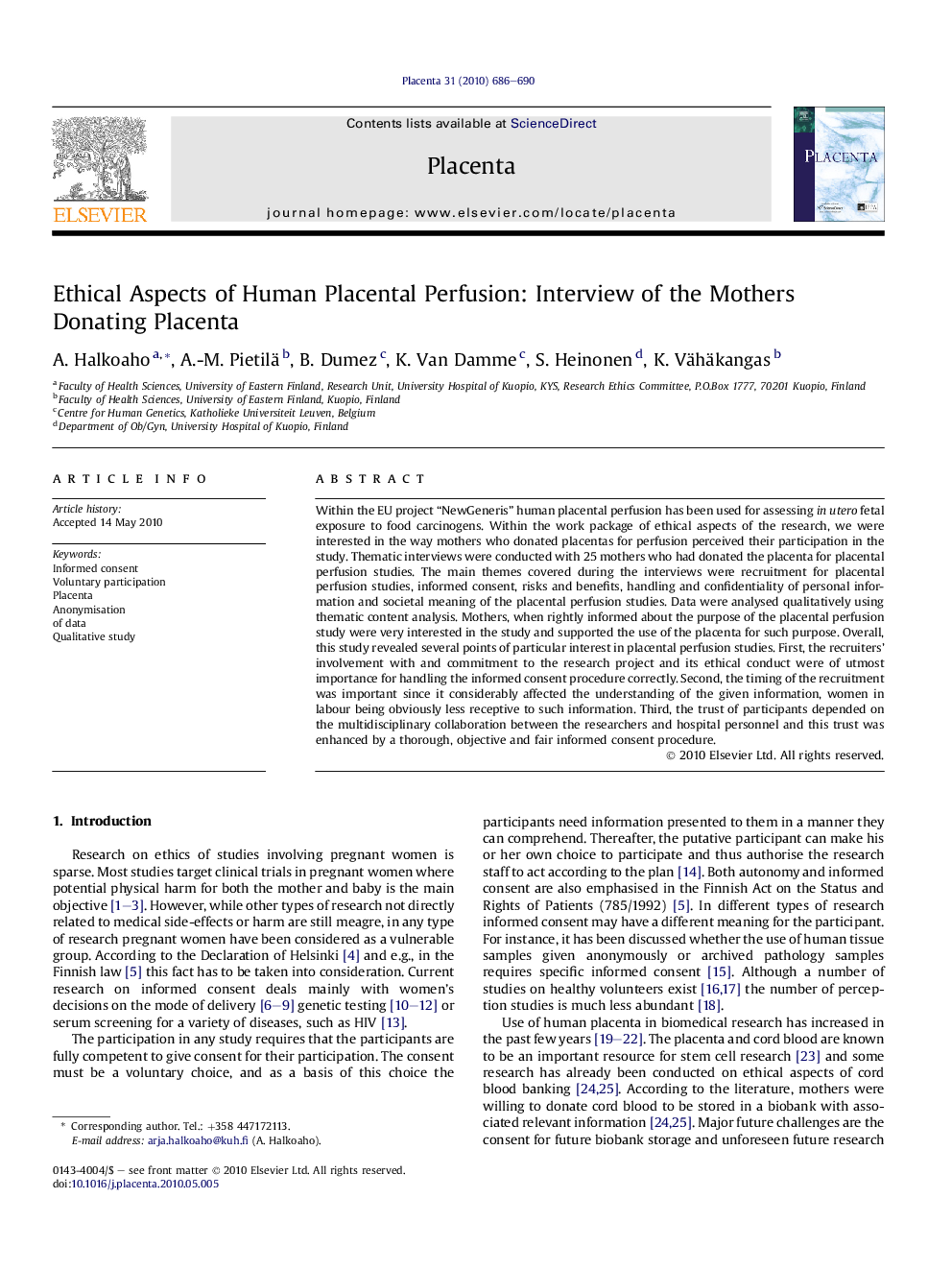| Article ID | Journal | Published Year | Pages | File Type |
|---|---|---|---|---|
| 2789651 | Placenta | 2010 | 5 Pages |
Within the EU project “NewGeneris” human placental perfusion has been used for assessing in utero fetal exposure to food carcinogens. Within the work package of ethical aspects of the research, we were interested in the way mothers who donated placentas for perfusion perceived their participation in the study. Thematic interviews were conducted with 25 mothers who had donated the placenta for placental perfusion studies. The main themes covered during the interviews were recruitment for placental perfusion studies, informed consent, risks and benefits, handling and confidentiality of personal information and societal meaning of the placental perfusion studies. Data were analysed qualitatively using thematic content analysis. Mothers, when rightly informed about the purpose of the placental perfusion study were very interested in the study and supported the use of the placenta for such purpose. Overall, this study revealed several points of particular interest in placental perfusion studies. First, the recruiters’ involvement with and commitment to the research project and its ethical conduct were of utmost importance for handling the informed consent procedure correctly. Second, the timing of the recruitment was important since it considerably affected the understanding of the given information, women in labour being obviously less receptive to such information. Third, the trust of participants depended on the multidisciplinary collaboration between the researchers and hospital personnel and this trust was enhanced by a thorough, objective and fair informed consent procedure.
